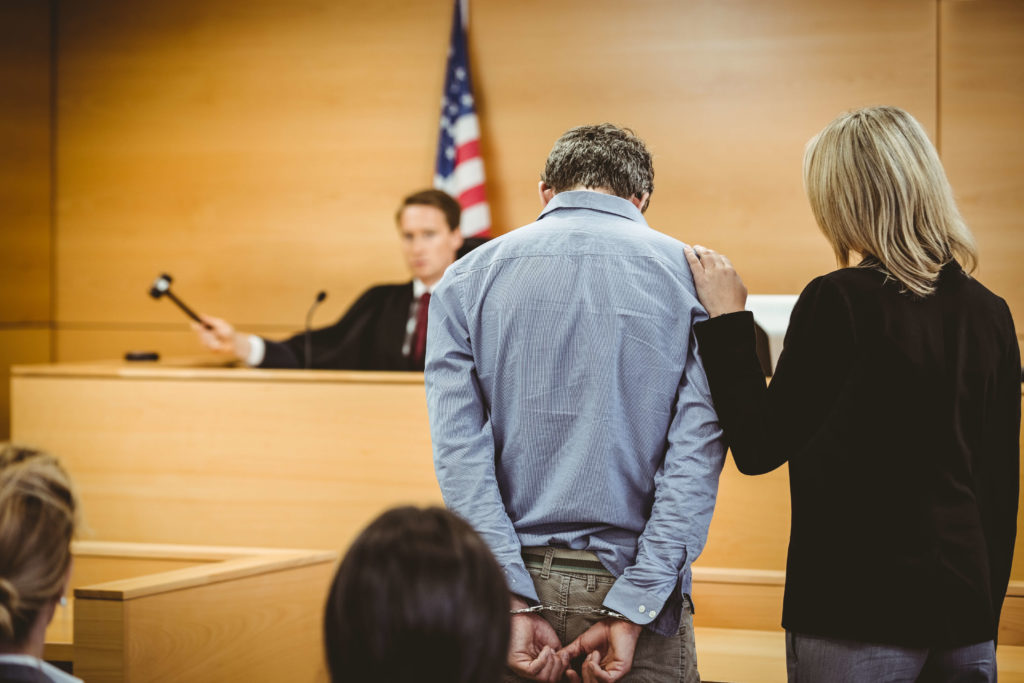Understand the Basics of a Plea Bargain and Connect with an Attorney
What Is a Plea Bargain?
Plea bargains are agreements reached between a prosecutor and defendant. With a plea bargain, a defendant agrees to plead “guilty” or “no contest” in exchange for reduced charges and/or sentences. The prosecutor benefits from a plea bargain because the case does not drag on and the court saves thousands of dollars. Criminal charges can take several weeks or months. If parties do not meet plea bargains, then legal courts become overburdened with cases.
A defendant and prosecutor can reach a plea agreement at any point during a criminal case. The negotiations can start immediately following a person’s arrest and may continue even through a trial, especially in the event of a hung jury.
For a court to consider a plea bargain valid, it must have these three components:
- The defendant must knowingly waive her or his right to a trial.
- The defendant must voluntarily waive his or her rights to a trial.
- There must be a factual basis for the charges the defendant pleads guilty to.
If the plaintiff and defendant cannot meet these three components, the plea bargain is not valid or legally binding.
Types of Plea Bargains
Charge Plea Bargaining
A charge plea bargain is when defendants plead guilty to a less severe crime than what they were charged with. For example, if a defendant received a felony possession of a controlled substance charge, he or she may reach a plea bargain where the charge changes to a misdemeanor.
Court Bargaining
Court bargaining refers to when defendants agree to plead guilty to fewer charges than what they were charged with. For example, if a defendant has a charge of three counts of possession of a controlled substance and possession of drug paraphernalia, the charge may reduce to just one count of possession of a controlled substance.
Sentence Bargaining
Sentence bargaining refers to when a defendant agrees to plead guilty with the promise of a reduced or minimum sentence for charges. This can lead to shorter sentences, probation instead of prison time or smaller fines.
Benefits of a Plea Bargain
Plea bargains benefit both defendant and prosecutor. This is why it is usually a more favorable result compared to going to trial. Here are the main benefits of negotiating and agreeing to a plea bargain:
Lighter Sentence
A plea agreement almost always leads to a lighter sentence for the defendant. Whether a plea bargain reduces or eliminates charges or guarantees a minimum sentence for the defendant, this is a great outcome for someone with a high likelihood of being found guilty after a trial.
Reduced Charge
Not only does a reduced charge mean a lighter sentence, but it can also be beneficial for moving forward in life. If you receive a felony criminal charge and reduce it to a misdemeanor, that can leave a lot of doors open that would otherwise be closed in terms of housing and job opportunities.
Reduced Court Costs
Going to trial means having to pay a ton of court costs in addition to paying your attorney for hours of work. The cost of going to trial can reach tens of thousands of dollars, and you have no guarantee of winning the case. By getting a plea bargain early on, you can save a ton of money by avoiding a trial and closing the case in a timely manner.
Eliminates Uncertainty of a Trial
When cases go to trial, it can take months before the jury reaches a verdict. Even then, the jury may not reach a verdict, or there could be a mistrial that leads to many more months of waiting. Going to trial leaves both the defendant and the prosecutor feeling uncertain about the outcome of the case and the timeline, not to mention the costs. By plea bargaining and reaching an agreement, you eliminate the uncertainty and move on from the case for good.
Consequences of a Plea Bargain
There are some negatives to a plea bargain that make it an unfavorable option for many people. Here are some consequences of agreeing to a plea bargain instead of going to trial:
You Cannot Plead “Not Guilty”
When a defendant reaches a plea agreement, he or she either pleads guilty or “no contest”. Pleading guilty means that you admit to the charges brought against you. Although, a plea bargain typically means you admit guilt to fewer crimes than law enforcement originally charged you with.
Pleading “no contest” means a defendant does not contest the charges, but he or she does not admit guilt, either. With a “no contest” plea, the defendant still has a criminal record. However, those charges do not become an admission of guilt, whereas a “guilty” plea is an admission of guilt.
When you reach a plea bargain, you sacrifice your ability to plead “not guilty.” Also, you do not have the chance to prove your innocence.
You Have a Criminal Record
Reaching a plea agreement means the charges you agree to appear on your criminal record forever. This affects future opportunities, such as applying for certain jobs. This alone is strong enough to deter many people from agreeing to a plea bargain. Because a criminal record affects the rest of their lives.
Work With an Experienced Local Lawyer
Have you recently received a criminal charge? If so, you must hire an experienced attorney to fight for your rights and reduce your charges by negotiating a plea bargain. An attorney understands how to negotiate with a prosecutor to get you the most favorable deal possible. Which is why you must consult a reputable and experienced lawyer right after your arrest.
To connect with an attorney near you, submit a request online or call us today at (866) 345-6784 to get in touch with an experienced lawyer in your area!

